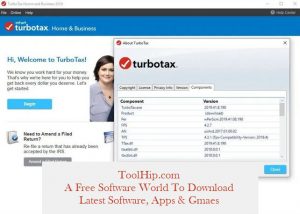

If your activity generates profit three out of every five years (or two out of seven years for horse breeding), the law presumes you're in business to make a profit, unless the IRS establishes otherwise. To be eligible to deduct a loss, you must be running the activity in a business-like manner and have a reasonable expectation of making a profit. But taxpayers also occasionally pull out a victory. The IRS usually wins in court, partly because it tends to settle cases in which it doesn't believe it can prevail.


The hobby loss rules are often litigated in the Tax Court. The IRS is on the hunt for taxpayers who year after year report large losses from hobby-sounding activities to help offset other income, such as wages, or business or investment earnings. Not every business ends up in the black every year, but too many years of losses can make the IRS think you're not really taking your business seriously enough-that it's just a hobby. Just understand that the more income shown on your return, the more likely it is that you'll be hearing from the IRS. We're not saying you should try to make less money. The IRS will be hard pressed to keep this promise, but it’s too soon to know for sure. Treasury officials have made a big promise, saying that taxpayers earning under $400,000 won’t see increased audit rates relative to recent years. and the IRS say that the enforcement funds will be used in part to audit more high-net-worth individuals and pass-through entities, such as LLCs and partnerships, among other taxpayers. IRS agents take a kitchen-sink approach in auditing these individuals by reviewing not only their 1040 returns, but also returns of entities they control, both foreign and domestic.Īnd remember, the IRS is getting more money for audits, with $45.6 billion of its $80 billion in extra funding over 10 years dedicated to enforcement activities and collection measures. A specialized group within the IRS tackles examinations of the super-rich. The IRS's high-wealth exam squad is even getting back into the action. Partly in response to this criticism, very wealthy individuals are once again in the IRS's crosshairs. The IRS has been lambasted in recent years for putting too much scrutiny on lower-income individuals who take refundable tax credits and ignoring wealthy taxpayers. And millionaires face the most audit heat. Sole proprietors reporting at least $100,000 of gross receipts on Schedule C have a higher audit risk. Your IRS audit odds increase dramatically as your income goes up. Doing so now could save you a lot of time and money down the road. If you want to avoid the wrath of IRS auditors, look at these 12 audit red flags for the self-employed. But you’ll still want to be ready for any IRS audit onslaught because the return you file this year might be snagged up for exam in 2024 or early 2025. Most of the enforcement effects from the IRS’s $80 billion windfall won’t be felt by taxpayers for at least a couple of years. It will take the IRS time to hire examiners and to train them to audit complicated tax returns. You might be aware that the Inflation Reduction Act, passed last year, gives the IRS $80 billion in extra funds over 10 years, with a large chunk of that money to be used by the IRS for increased enforcement activities. Special scrutiny is given to cash-intensive businesses, highly profitable companies, and small-business owners whose Schedule C's report a substantial net loss (especially if those losses offset in whole or in part other income reported on the return, such as wages or investment income). The IRS looks at both higher-grossing sole proprietorships and smaller ones. And it's also a gold mine for IRS agents, who know from experience that self-employed people sometimes claim excessive deductions and don't report all their income. Schedule C is a treasure trove of tax deductions for self-employed people.


 0 kommentar(er)
0 kommentar(er)
